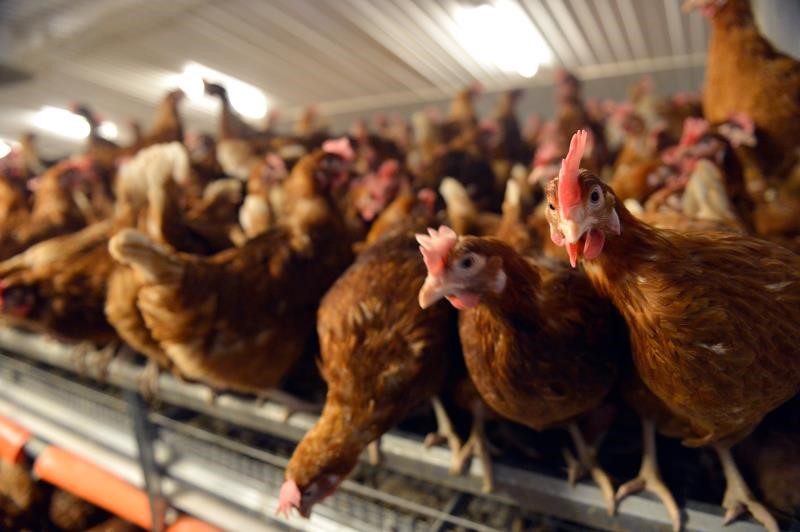Find out more about the Avian Influenza Prevention Zone (AIPZ) and housing measures here
The full AIPZ declaration can be found for England here
The full AIPZ declaration for Wales can be found here
The Chief Veterinary Officers for England, Scotland and Wales have agreed to bring in additional measures to help protect poultry and captive birds, following rising cases of Avian Influenza in both wild birds and poultry in the UK.
The new housing measures, announced on 3 December, will come into force at 00:01 AM on the 14 December, meaning that from this date it will be a legal requirement for all bird keepers to keep their birds indoors and follow strict biosecurity measures to combat the spread of Avian Influenza.
A joint statement from Great Britain’s three Chief Veterinary Officers said:
“We have taken swift action to limit the spread of the disease and are now planning to introduce a legal requirement for all poultry and captive bird keepers to keep their birds housed or otherwise separate from wild birds.
“Whether you keep just a few birds or thousands, from 14 December onwards you will be legally required to keep your birds indoors or take appropriate steps to keep them separate from wild birds. We have not taken this decision lightly, but it is the best way to protect your birds from this highly infectious disease.”
NFU chief poultry adviser Aimee Mahony said:
“Due to a number of confirmed Avian Influenza cases, the introduction of these new housing measures is a logical next step to best protect poultry.
“These new measures mean that every poultry keeper, whether you have one hen in the garden or a large poultry business, must house their birds indoors and I would urge everyone with poultry to take these measures seriously.
“It’s crucial that everyone remains vigilant and reports any signs of disease in their birds at the earliest opportunity.”
Poultry and captive bird keepers are advised to be vigilant for any signs of disease in their own birds and seek prompt advice from their vet if they have any concerns.
All poultry keepers can help prevent avian influenza by maintaining good biosecurity, including:
- Housing all poultry and captive birds or netting any outdoor access areas.
- Cleansing and disinfecting clothing, footwear, equipment and vehicles before and after contact with poultry and captive birds – if practical, use disposable protective clothing.
- Reducing the movement of people, vehicles or equipment to and from areas where poultry and captive birds are kept, to minimise contamination from manure, litter and other products, and using effective vermin control.
- Thoroughly cleaning and disinfecting housing at the end of a production cycle/between flocks.
- Keeping fresh disinfectant at the right concentration at all points where people should use it, such as farm entrances and before entering poultry and captive bird housing or enclosures.
- Minimising direct and indirect contact between poultry and captive birds and wild birds, including making sure all feed and water is not accessible to wild birds.
These newly announced measures build on the increased biosecurity requirements brought in as part of the Avian Influenza Prevention Zone (AIPZ) on 11 November 2020. The new housing measures will be mandatory from 12:01am on the 14 December onwards and will be kept under regular review as part of the government’s work to protect the national flock.
More information:
- Avian Influenza: What to do if you are in a Restricted, Protection or Surveillance Zone
- UK AI outbreaks – find out the latest news here
- Avian influenza cases rise in Europe
- Read the latest news and advice on the NFU’s avian influenza pages
- Download the NFU’s guide to avian influenza here
- The latest avian influenza updates from Defra can be found here

